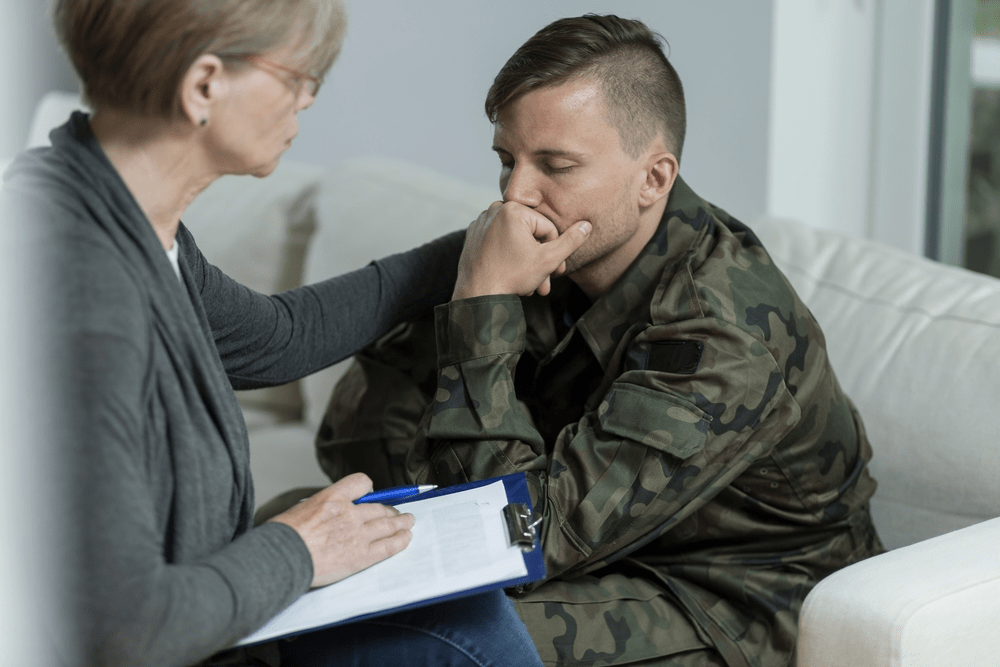Many people were raised to believe that needing help when coping with trauma is a sign of weakness. There’s a persistent assumption that “toughing it out” or “getting over it” is the right path to take. Unfortunately, this inaccurate belief can result in a failure to seek necessary treatment. Traumatizing events are more than just “bad days,” and it’s important to treat them appropriately.
At Transformations, our programs center on proven mental health treatments that help overcome the detrimental effects of trauma. Whether you’re experiencing mild emotional and physical symptoms or have dealt with post-traumatic stress disorder (PTSD) for years, seeking help should be your top priority. Once you understand this, the real healing for your mental health condition can begin.

One of the biggest misconceptions about trauma is that it’s a singular condition that affects everyone equally. This creates a hurdle for some who need professional help since many people may not even recognize trauma. Some view PTSD and similar disorders as something that only affects soldiers and first responders, but this couldn’t be further from the truth. Failing to recognize causal incidents can leave a person coping with trauma on their own.
These are just a few of the common causes of trauma, and traumatic memories can affect different people in different ways. It’s very possible that someone could go through these events and suffer no long-term effects. The potential also exists that symptoms could develop immediately after a traumatic event and then disappear in time. Unfortunately, it doesn’t always work like this.
Understanding the need for help when coping with psychological trauma requires recognition of potential side effects. PTSD and similar conditions do not care how strong you are, and the symptoms that occur can prove fatal if untreated. PTSD treatment centers witness the following outcomes daily, and they prove just how important it is to seek professional help.
While all these side effects show the importance of seeking help when coping with emotional trauma, suicide attempts can have the biggest consequences. Those who develop PTSD have a suicide rate 13 times higher than average. These thoughts won’t typically develop immediately upon experiencing trauma, though. It’s when symptoms go untreated that things get bad.

Call now to be connected with one of our friendly, helpful admissions specialists.
The side effects described above are red flags that something is wrong. These outcomes aren’t necessarily beneficial, though, in diagnosing a condition early on. And since dealing with the effects of a traumatizing or disturbing event early will improve outcomes, there are other signs you should pay attention to. Every PTSD symptom falls into one of the following categories:
While each of these is completely normal following a traumatizing event, it could also indicate a diagnosable condition when they cause severe distress or impairment in a person’s life. If you’re experiencing this, there’s no question of whether you need help coping with trauma. The answer is “yes.” The real question is how bad you’ll allow things to get before seeking help.
By now the potential severity of trauma should be apparent, but many people still fail to seek treatment that can treat PTSD or other mental illness caused by a traumatic event. Well-meaning online resources often convince sufferers that they can help themselves through activities such as meditation and exercise. While these can certainly help, they cannot replace proven therapeutic approaches that focus on healing.
The most effective treatments for PTSD and similar conditions showcase how important it is to seek help when coping with traumatic experiences. You simply cannot do many of these things from the comfort of your home, and this is why PTSD treatment centers are so essential.
Transformations Mending Fences offers all these therapeutic approaches for coping with trauma. While some may see this as overkill, it’s important to never forget that trauma affects everyone differently. Some may need yoga therapy with deep breathing techniques to cope while others may need art therapy. An event that causes PTSD in one individual may have no effect on someone else, and treatment efficacy can vary between clients.
The most important thing to remember from all this information is that ignoring trauma is not an option. Even if you think your symptoms are mild, they can progress to further trauma and become long term if not dealt with effectively. The need for help coping with trauma is very real, so don’t risk your health because of flawed ideas on what it means to “move on.”

Whether trauma stems from a sudden incident, long-term abuse, continuing exposure, or any other issue, there’s no shame in seeking help. The side effects of these events can manifest on psychological and physical levels, and no matter what anyone says, “toughing it out” often isn’t an option. If you’re having trouble coping with a traumatic event, the time to seek help is now.
Transformations Mending Fences has certified professional staffs committed to our clients’ well-being. We understand the unique ways that trauma and Post Traumatic Stress Disorder can affect a person, and that’s why we customize our mental health services in Morriston, FL to the individual. Hesitating to seek help when coping with trauma will only make the situation worse. Contact us today to learn how our PTSD treatment center can help.
Sources
Medical News Today
https://www.medicalnewstoday.com/articles/trauma
PTSD Research Quarterly
https://www.ptsd.va.gov/publications/rq_docs/V28N4.pdf
American Psychological Association
https://www.apa.org/advocacy/interpersonal-violence/women-trauma
The American Institute of Stress
https://www.stress.org/acute-stress-disorder